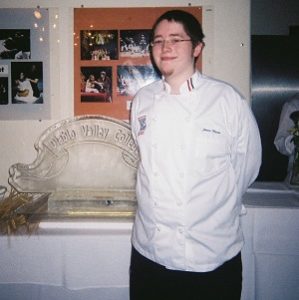Let Life Bloom
Joseph Moore
At Diablo Valley School, it’s not uncommon for students to take college-level classes as young teenagers. Italian, computer programming, dance, culinary arts, theater — these are just some of the classes kids as young as 13 have taken at the local community college and elsewhere.

And college is just one way, perhaps not the most important way, that DVS students engage the adult world. Kids have gotten real jobs as soon as the law allows, and start and run a seemingly endless stream of projects that link them to or mimic what adults do, from in-house snack bars and sushi clubs to field trips and dance parties.
This early blossoming of adult-level responsibility and initiative we see in our 14 and 15 year olds is surprising only because our culture has made delaying adulthood a goal. It has not always been like this. To put things in perspective, Julius Caesar was running important diplomatic errands for his father when he was 12; at 16, he was the head of a powerful Roman family. David Farragut was given command of a ship in the War of 1812 — at 12 years old. And it’s not just a few famous people. Many of the pioneers who settled the American frontier were teenagers who today would still be in school.
But we no longer allow the ambitions of teenagers to flower. Today, we want our kids to stay kids until at least 18, and, among the college-going crowd, 22 or later — after law or med school, for example. That a 14 year old might want to get a job or travel is disconcerting — enjoy your childhood, kid, while you can!
The results of this artificial suppression of adult ambitions in teenagers have not been good. First is the boredom almost universally reported by high-school aged students. But more importantly, there’s no guarantee that responsibility will somehow develop later if it is systematically stunted when it naturally arises. Instead, we end up with an alarming number of young adults (and older adults!) who have learned to wait around for someone else to make things happen, to sedate themselves with toys, food, drugs, TV and so on, and then to complain about their lives.
At DVS, the kids find out early on that it is their responsibility to make things happen. Nobody is going to watch over you every minute to make sure you don’t “waste” time; nobody will lay out pre-determined path to what you “ought” to do. It is not surprising to see that many of our students find a passion at an early age. DVS gives our students the freedom and support needed to pursue their passion, making for happier, healthier and more focused young adults.